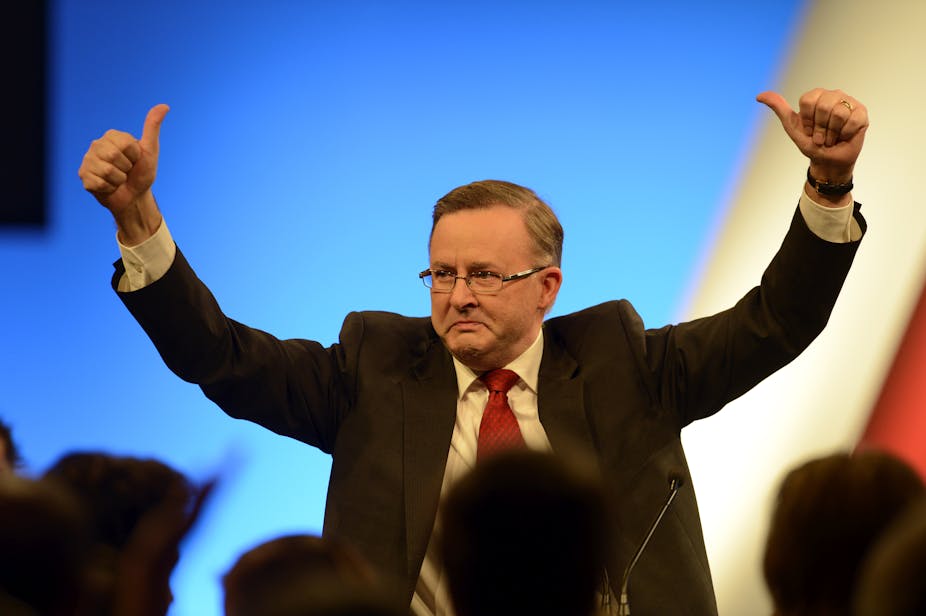Anthony Albanese has suggested Labor should help pay for its leadership contest by running a forum for business people to hear from the two candidates.
Tomorrow Labor’s national executive will discuss the rules of engagement for the battle between Albanese and Bill Shorten - which will run several weeks - including whether the debates between them should be public.
Involving the business community could assist with funding that will be needed because the candidates will be travelling around the country to put their cases to party members, who get 50% of the say in the election, with caucus having the other 50%.
Albanese said the contest was “an opportunity for Labor to show that we are inclusive, that we are open, that we are not frightened of debating ideas.
"If this is done right, this can give us enormous momentum at the beginning of what is going to be a difficult period”.
He admitted he had some concerns about caucus regaining the power to select the frontbench, but does support that move.
Albanese said there were problems getting the right geographic spread and the right “overall outcome”. “But I’m sure we can work that through,” he told Sky.
“I don’t think we always had our best team from ‘96 when the factions were choosing all of the frontbench.” He had believed for some time that the power of the factions needed to be diminished, and power needed to be given back to the grassroots.
On the issue of climate change, he said Labor needed “to be prepared to stand up and argue our case… The best way of acting… is using market-based mechanisms through an emissions trading scheme”.
Interim Labor leader Chris Bowen said his party did not want a lecture from incoming Prime Minister Tony Abbott on having a mandate to repeal the carbon tax, when Abbott’s “entire rationale” for becoming opposition leader in 2009 “was to provide an obstacle to the Labor party implementing its mandate [for an emissions trading scheme] in office”.
“Tony Abbott is not in any position to lecture other people about mandates.”
Bowen also said the incoming government was asking Labor to declare its voting intention when it had not even seen the legislation, including for the “Direct Action” plan that the Coalition had not had costed.
He added that he believed in carbon pricing, because climate change was real and something should be done about it. Labor should continue to put its point of view.
Bowen said both Albanese and Shorten had indicated that they would want him to be shadow treasurer, a position he had publicly indicated he would seek.
Shorten said that if he became leader “you’d find me spending a lot of my time outside of Canberra, because that’s where Australia’s really happening”. He invoked the line that, in opposition, it was all about “the three Ps”: the party, the policies and the people. Labor needed to work as a team, make sure it was connecting with the lives Australians were actually leading, and listen to people.
Frontbencher Joel Fitzgibbon said it was likely Shorten had the support of caucus and Albanese the backing of the rank and file.
But he suggested the rank and file feeling would influence the caucus, even though caucus would not know the result of the grassroots ballot when it voted. “I think you will probably feel the momentum, the atmosphere throughout the election campaign. And maybe the caucus will be influenced by that”.
When it was put to him that the two contenders would both want to keep the carbon tax, Fitzgibbon said he was sure they would want to keep a “carbon constraint”. The real issue was what policy Labor wanted to take into the next election. Having had a carbon constraint as one of its key signature issues for the last 20 years “then of course we should continue to promote ourselves as the party determined to take action on climate change”.

